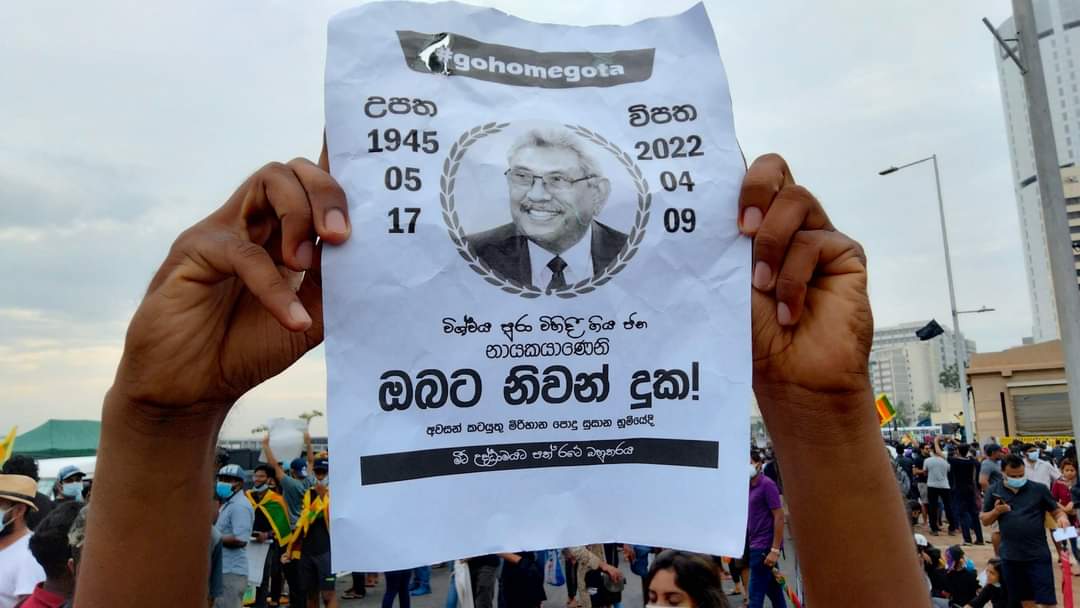
A protestor in Colombo holds a mock obituary for Sri Lankan president Gotabaya Rajapaksa, written in Sinhala.
Sri Lanka’s economic crisis deepened today, as the finance ministry and governor of the Central Bank announced the government would no longer be able to pay its international debt obligations, effectively defaulting on US$51 billion of foreign debt.
"It has come to a point that making debt payments are challenging and impossible,” the newly appointed Central Bank Governor P. Nandalal Weerasinghe told reporters this morning. “The best action that can be taken is to restructure debt and avoid a hard default."
"This will be on a temporary basis until we come to an agreement with creditors and with the support of a programme with the IMF," he added, as anti-government protests continued across Sri Lanka’s capital.
Sri Lanka’s finance ministry announced the government would “suspend normal debt servicing,” adding that "the government is taking the emergency measure only as a last resort in order to prevent further deterioration of the republic's financial position".
According to the statement, the failure to pay will be on all "affected debts," citing bonds issued in international capital markets, bilateral credits, and foreign loans. The total amount is thought to be approximately US$51 billion.
Creditors were free to capitalise any interest payments due to them or opt for payback in Sri Lankan rupees, it added.
The Sri Lankan rupee has sharply fallen in value to become what the Financial Times has deemed the ‘worst-performing currency in the world’ this year.
See the full finance ministry statement here.
